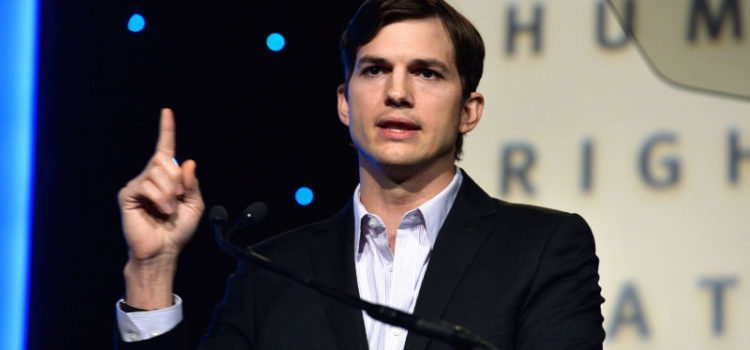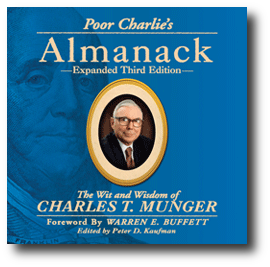

You might know Ashton Kutcher from his acting in “Two and a Half Men” and “That 70’s Show.” But he’s also a tech investor with an impressive hit rate – investing in Skype, Foursquare, Airbnb, and Uber. He co-founded A Grade Investments and Sound Ventures, whose first fund size is $130 million.
Here’s what I’ve learned from Ashton on the tech side.
Ashton’s History of Tech Investing
When running his production company, he realized video buffering speeds were dropping, and content delivery was moving online into Youtube. He also thinks he spotted tech trends early as an entertainer – after his film “Dude, Where’s My Car,” he’d go to AOL chat rooms and start “Dude, sweet!” threads to promote the film.
He had some personal needs like quantifying digital audiences that led to early investments. Involvement in one company led to another, and he made early investments in Foursquare, Optimizely, Skype, Square.
What got him into these deals? Back then, no actors were investing, so companies could get some press by getting him onboard as an investor. He also entered tech prominence when racing against CNN to get the first million followers in 2008.
How’d he make successful bets? He was willing to be the stupidest person in the room and learn. He also cared about product quality and was willing to invest only when the product experience was amazing.
After doing relatively well, Ashton started A Grade investments when he ran out of his personal money to invest. He then started Sound Ventures, which is bigger and raised $130 million for its first fund.
How Ashton Identifies Good Investments
His firm has a founders first agenda, with 3 criteria:
- Grit
- Ability to sell their product
- Domain expertise
Some of his favorite questions:
- Did you have hustle when you were young?
- What was the hardest thing you persevered through? What passion drove you through that?
Before understanding the company, he finds it more helpful to understand who the people in the company are.
Only then does he see how well the team works strategically, whether they can predict problems that will impede the company later, like regulation or the competition.
Good and Bad Investment Decisions
Uber
Very early, Ashton didn’t quite get it. Why would people pay more than a taxi to have black car. Eventually he realized as the flywheel effect spun and Uber kept gaining more riders and drivers, rides would end up being cheaper.
He always thought the ridesharing model (eg Lyft) would be better than the luxury model, but ultimately Uber won by building their luxury brand first, then going top down.
Eventually he saw product market fit and invested in the B round.
He saw regulatory risk here with taxicab commissions, but he believed momentum would push it through.
Airbnb
He invested in Series B, when they had clear product-market fit.
Peter Thiel’s advice ran through his head – of companies doing unintuitive things. AirBNB was super unintuitive – who’s going to open their house to strangers and live in?
Like this summary? Want to learn more from books than ever? You'll love my product Shortform.
Shortform has the world’s best guides to 1000+ nonfiction books and articles. Even better, it helps you remember what you read, so you can make your life better. What's special about Shortform:
- The world's highest quality book guides - we discuss the book's main ideas, with expert analysis and commentary expanding will beyond the book
- Interactive exercises that teach you to apply what you've learned
- Discussion communities - get the best advice from other readers
Sound like what you've been looking for? Sign up for a 5-day free trial here.
But once he started trying the service, he realized he got more value for less cash compared to hotels, and he got the idea.
Decisions that didn’t work out
Secret – this anonymous messaging app closed after a mountain of bad press about bullying, and declining engagement numbers. Ashton believes the anonymous space is something we want but aren’t ready for. He thinks that AI that will defeat trolls will help these apps provide the experience they were meant for.
Snapchat – Ashton passed twice on investing here. Periodically he asks his Twitter followers what apps they’re using – at one point, it was half Tinder, and half Snapchat. But he didn’t find the app beautiful or elegant, and he didn’t like the use case. He also didn’t like that there was an open secret about Snapchat actually storing the images on a server somewhere, despite claims otherwise.
Tinder – Ashton thought it was a great experience, but it was part of IAC and they didn’t let him invest.
Mistakes he’s made in investments
Ashton says he’s very loyal, and he tends to stick with people when the writing’s on the wall.
Sometimes a reset is better than relentless optimism, since it lets everyone find new ways to be more productive.
On Evolving the Sitcom Medium
For his show The Ranch, Ashton and team joined Netflix to push the creative boundaries of sitcoms. On web streaming, they aren’t confined to the same time restrictions and creative guidelines as on TV – both determined by advertisers. Because of its lack of sponsors, Netflix doesn’t intervene creatively in the show, unlike TV where the network might force script rewrites to avoid offending an advertiser.
The medium affects the art – because of the instantly-available, binge-watching nature of Netflix, story arcs can stretch across multiple episodes. Jokes can be set up in one episode and pay off in another. Netflix can also provide much more data about who’s watching the show, and they can more precisely target their viewers.
Practically, his show (about rural life) is meant to help Netflix open up the middle America market.
Morally, he sees the show as a way to make abstract social issues real, like having a character personify the immigration debate.
How Hollywood is Changing Because of Tech
Short form content (like 30-60 minute shows) is digital now, with no question. There’s now an open market for selling your shows – not just the traditional networks but also Netflix and Amazon. The quality bar has also risen substantially – Game of Thrones is the most incredible TV show that’s not actually made as a film. It’s good for consumers all around.
The economics have changed. The model is no longer syndication-heavy. When online advertising spend reaches parity with TV, the power will shift to online media.
Live content is also compelling and will become higher quality.
Thoughts on Twitter’s Future
Twitter needs product revolutions or they’re in trouble. They’ve gone through 3 CEO transitions, and often a new CEO takes a year to get major product changes out.
They IPO’d too early and had to drive revenue before the product cycles really fully panned out. Then the trolls and the ads came, and the experience never got the benefit of the full viral loop it needed.
Recommended Resources
Willpower Instinct
Sources:
Re/Code Decode Podcast
Like this summary? Want to learn more from books than ever? You'll love my product Shortform.
Shortform has the world’s best guides to 1000+ nonfiction books and articles. Even better, it helps you remember what you read, so you can make your life better. What's special about Shortform:
- The world's highest quality book guides - we discuss the book's main ideas, with expert analysis and commentary expanding will beyond the book
- Interactive exercises that teach you to apply what you've learned
- Discussion communities - get the best advice from other readers
Sound like what you've been looking for? Sign up for a 5-day free trial here.



